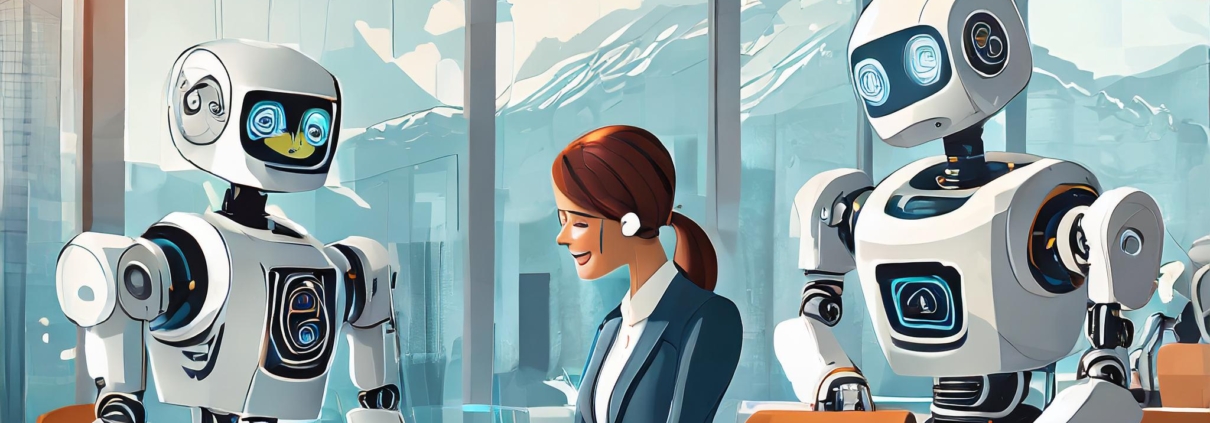Impact of AI on Future Demand for Skilled Workers
Impact of AI on Future Demand for Skilled Workers
The impact of artificial intelligence (AI) on the shortage of skilled workers is complex and can vary depending on the industry, region, and application of the technology. However, as discussed on various platforms, AI will have a significant impact on skilled workers’ jobs – on both sides of the scale.
Positive effects
- Automate Routine Tasks: AI systems will increasingly take over repetitive and time-consuming tasks, allowing professionals to focus on more complex and value-adding activities.
- Increased Efficiency: By using AI in various work processes, companies can increase their productivity, which can partially compensate for the shortage of skilled workers.
- Education and Training: AI-based learning platforms and tools can be customized to provide employees with targeted skills or deepen existing knowledge. This can help meet the current demand for specialized professionals more quickly.
- Talent Discovery: AI-powered recruitment tools can help employers identify and target suitable candidates more efficiently by analyzing large amounts of data to filter out potential candidates with the skills they seek.
Negative effects
- Displacement of Certain Professions: In some sectors, the adoption of AI technologies could lead to less demand or will even eliminate certain professions, as machines can do these jobs more cost-effectively, faster, and more precisely.
- Increasing Skill Requirements: Implementing AI in various fields can lead to an increase in the demands on employees’ qualifications. People whose skills are no longer up-to-date may find it challenging to gain a foothold in the labor market.
- Growing Skills Gap: While some industries benefit from automation and create new high-skilled jobs, other sectors could suffer from an increased skills shortage, especially when it comes to maintaining and monitoring these new technologies.
Impact of AI on Future Demand for Skilled Workers
AI has the potential to alleviate the shortage of skilled workers in some areas by automating routine tasks and increasing efficiency. Already now, it isn’t easy to find candidates, especially in sectors like AI prompting or AI engineering. At the same time, however, it also poses new challenges in terms of the necessary skills of the workforce. A key strategy for maximizing the positive effects of AI is to invest in education and lifelong learning to ensure the workforce can keep up with rapidly evolving technologies.



